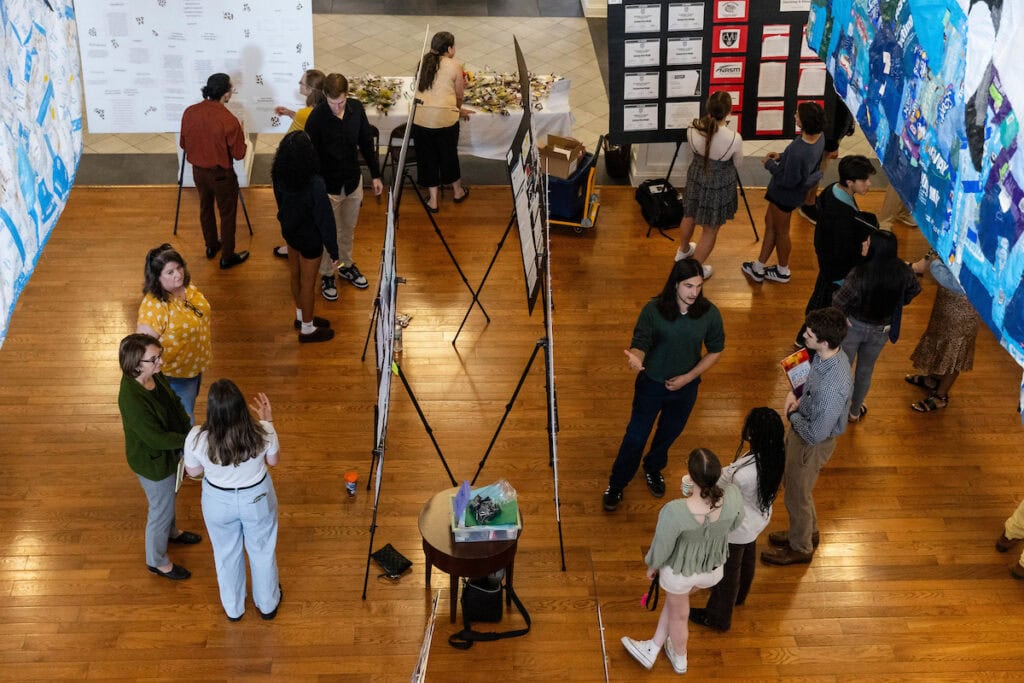Symposium of Artists and Scholars set for April 23

The annual Symposium of Artists and Scholars brings together Randolph students of all disciplines to share the results and highlights of the best work being produced at the College.
The College’s 17th annual Symposium of Artists and Scholars (SAS) will shine a light on a wide range of topics this year—from how athletes cope with mental health challenges to an examination of photosynthetic pigments in seagrass to the motion of a car traveling down a bumpy ramp.
Modeled after the traditional academic conference, Randolph’s symposium features a keynote speaker, as well as oral presentations, readings of creative work, performances, exhibitions of student artwork, and poster presentations.
Christopher Hamner, a history professor at George Washington University, will give this year’s keynote, “Critical Thinking Will May Save Us All,” at 9:30 a.m. on Wednesday, April 23, in Nichols Theatre.
In his speech, Hamner will reflect on the ways that critical thinking and the liberal arts can help make sense of a complex world awash in information, misinformation, and disinformation and how a grounding in old-fashioned research helps us navigate the challenges of the 21st century world.
Poster presentations and exhibits will be held from 10:45 a.m. to noon in Hampson Commons, followed by two sessions of oral presentations from 1:30 to 2:30 p.m. and 2:45 to 4 p.m.
Research topics include moral decision-making, solar photovoltaic systems, religious affiliation and romantic relationships, the “strong Black woman” stereotype, antioxidants in wine, pathogen-carrying ticks, and abolitionist John Brown.
Students will also show off their creative work, including a one-woman show exploring how trauma is passed down through generations, a choreographed dance reflecting on the theme of individuality within a community, and readings of poetry and short stories.
Several collages made with plastic film waste will be on display as part of the poster presentations, created by students who took a Marine Plastic Pollution course this spring. Each collage features a marine species affected by the entanglement and ingestion of plastic waste.
Participants also used SAS to document and highlight their College experiences, including studying abroad and participating in Randolph’s Summer Research Program.
Find out more at https://www.randolphcollege.edu/research/sas.
Tags: Symposium of Artists and Scholars
